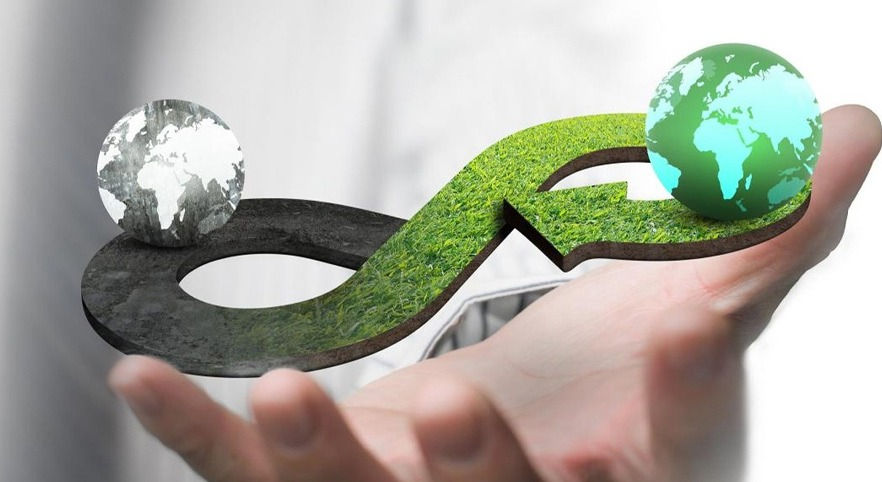Security Threats to Investment in Africa: A Barrier to Sustainable Economic Growth
- Alioune Aboutalib Lô

- 1 Eyl 2025
- 4 dakikada okunur

Introduction
Africa, rich in natural resources and endowed with significant growth potential, increasingly attracts the attention of international investors. However, this dynamism is hindered by various security risks, ranging from terrorism to political instability, as well as intercommunal conflicts and transnational crime. These often structural threats negatively impact investor confidence, raise capital costs, and jeopardize the long-term viability of economic projects.
1. Political and Institutional Insecurity
Institutional fragility and undemocratic political transitions remain major sources of insecurity for investments. Recurring coups in countries such as Mali, Burkina Faso, and Niger reflect regime instability and weak rule of law. Legal uncertainty resulting from regime change can lead to contract renegotiation, asset expropriation or nationalization, and arbitrary tax reforms.
According to the World Bank (2023), countries rated as having “low control of corruption” and “low political stability” attract, on average, 30% less foreign direct investment (FDI) than better-governed African states.
2. Terrorism and Armed Conflicts
Terrorism presents a direct threat to businesses, infrastructure, and supply chains. The Sahel has become the epicenter of growing insecurity, with groups such as the Jama’at Nasr al-Islam wal Muslimin (JNIM) and the Islamic State in the Greater Sahara (ISGS) threatening economic corridors. Attacks on mining convoys and foreign workers—especially in Burkina Faso and Niger—illustrate the direct link between terrorism and a deteriorated business climate.
According to the African Center for Strategic Studies (2024), terrorist violence in the Sahel has tripled since 2019, prompting several Canadian and Australian mining companies to suspend or scale back operations in the region.

3. Intercommunal Conflicts and Ethnic Tensions
Some conflicts stem from competition over control of natural resources (land, water, pastures, minerals). These disputes, often politically manipulated, destabilize entire regions. In Nigeria, for example, clashes between farmers and herders—exacerbated by climate change and urbanization—have caused thousands of deaths and mass internal displacements.
These conflicts hinder secure land access, disrupt agricultural and industrial activities, and undermine mid- to long-term investment planning. The World Economic Forum (2022) emphasizes that land insecurity in Africa is a major barrier to investment in the agro-industrial sector.
4. Transnational Crime and Piracy
The Gulf of Guinea remains one of the most dangerous maritime zones globally for commercial shipping, impacting imports, exports, and investments in ports and logistics infrastructure. While the number of attacks has declined slightly, piracy remains a serious threat, with frequent kidnappings for ransom.
In parallel, illicit trafficking (drugs, arms, human beings) fuels criminal networks and undermines state institutions. These illicit flows create a parallel economy, distort competition, and increase the cost of regulatory compliance for formal businesses.

5. Cyber Threats and Digital Security
Africa’s rapid digital transformation has led to a significant increase in cyberattacks, particularly in the banking, energy, and telecommunications sectors. Weak regulatory frameworks, poor cybersecurity infrastructure, and the rise of vulnerable fintech platforms amplify the risks faced by investors.
According to Interpol (2022), cyberattacks in Africa have increased by over 200% in just three years. Financial data breaches and service disruptions are increasingly considered in investor due diligence processes.
6. Social Unrest and Protest Movements
Social movements (strikes, protests, riots) driven by economic, political, or identity-based grievances frequently disrupt economic activity. Price inflation, mass youth unemployment, and weak public services contribute to a volatile social climate. Investors in energy, transport, or mining sectors are particularly exposed to such disruptions.
For example, in Senegal during 2021 and 2023, political riots caused losses estimated in the tens of millions of dollars for private companies (Jeune Afrique, 2023). In many cases, these disturbances also lead to infrastructure sabotage or the withdrawal of foreign companies.
7. Climate Change and Environmental Security
Climate-related risks (droughts, floods, desertification) directly impact infrastructure, agriculture, food security, and internal migration. These effects fuel social instability and intensify resource-related tensions.
The African Development Bank (AfDB, 2022) estimates that economic losses from climate impacts could reach 7–9% of GDP in some African countries by 2050 if adaptation measures are not implemented. Environmental risks particularly affect investment in agriculture, energy, and coastal infrastructure.
8. Judicial Weakness and Legal Insecurity
Security threats are not only physical but also legal. Unpredictable regulations, judicial inefficiency, and corruption deter long-term investments. Many investors complain about difficulties in contract enforcement, dispute resolution, and profit repatriation.
UNCTAD (2023) reports that over 65% of FDI-related disputes in Africa involve tax issues or contract breaches, often due to legal instability or political interference.

Conclusion
Security threats to investment in Africa are diverse, complex, and often interconnected. While Africa offers tremendous opportunities, particularly in natural resources, green energy, and digital technologies, securing the business environment is essential to mobilize foreign capital. It is the responsibility of African states, alongside international partners, to develop strategies for inclusive governance, conflict prevention, professionalization of security forces, and reinforcement of the rule of law to mitigate these risks. Without long-term stability, Africa’s economic potential will remain only partially realized.
References
African Center for Strategic Studies. (2024). Extremist violence in Africa: Trends and responses. https://africacenter.org
African Development Bank. (2022). Climate risk assessment in Africa. Abidjan: AfDB.
Interpol. (2022). Cybercrime in Africa: Threats and responses. Lyon: Interpol.
Jeune Afrique. (2023). Senegal: The economic cost of political riots. https://www.jeuneafrique.com
OECD. (2023). Investing in fragile environments: Outlook for Africa. Paris: OECD.
UNCTAD. (2023). World Investment Report: Investing in Sustainable Energy for All. Geneva: United Nations.
World Bank. (2023). Worldwide Governance Indicators. https://info.worldbank.org/governance/wgi
World Economic Forum. (2022). Global Risks Report 2022. Geneva.










Yorumlar